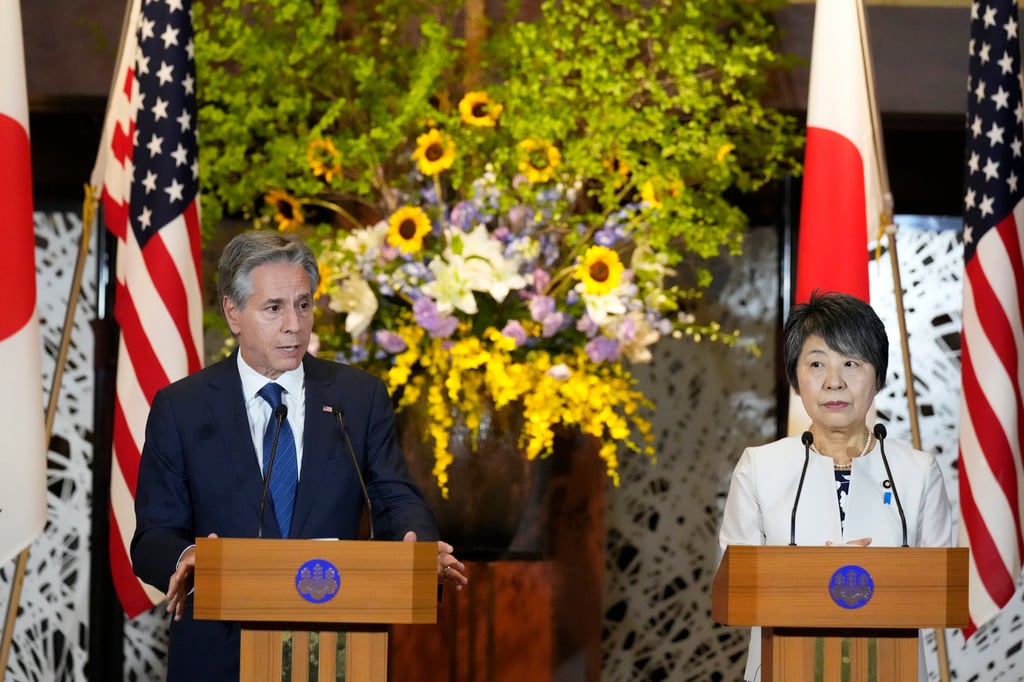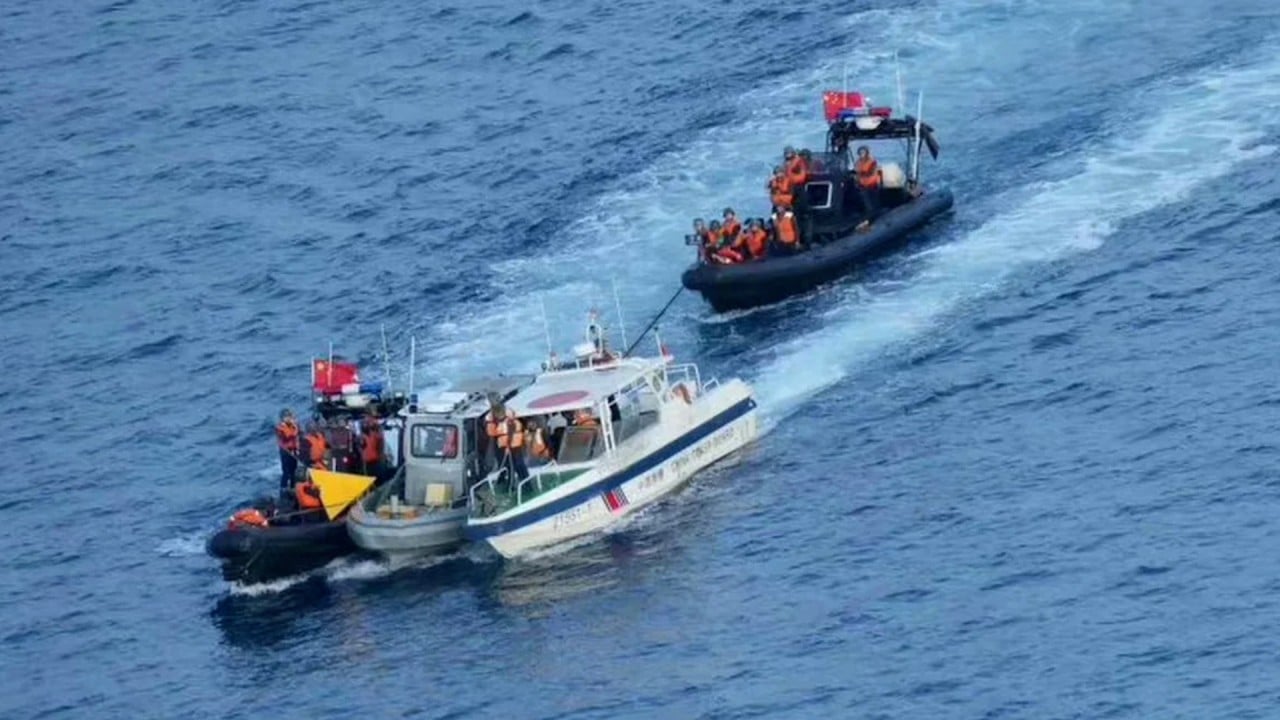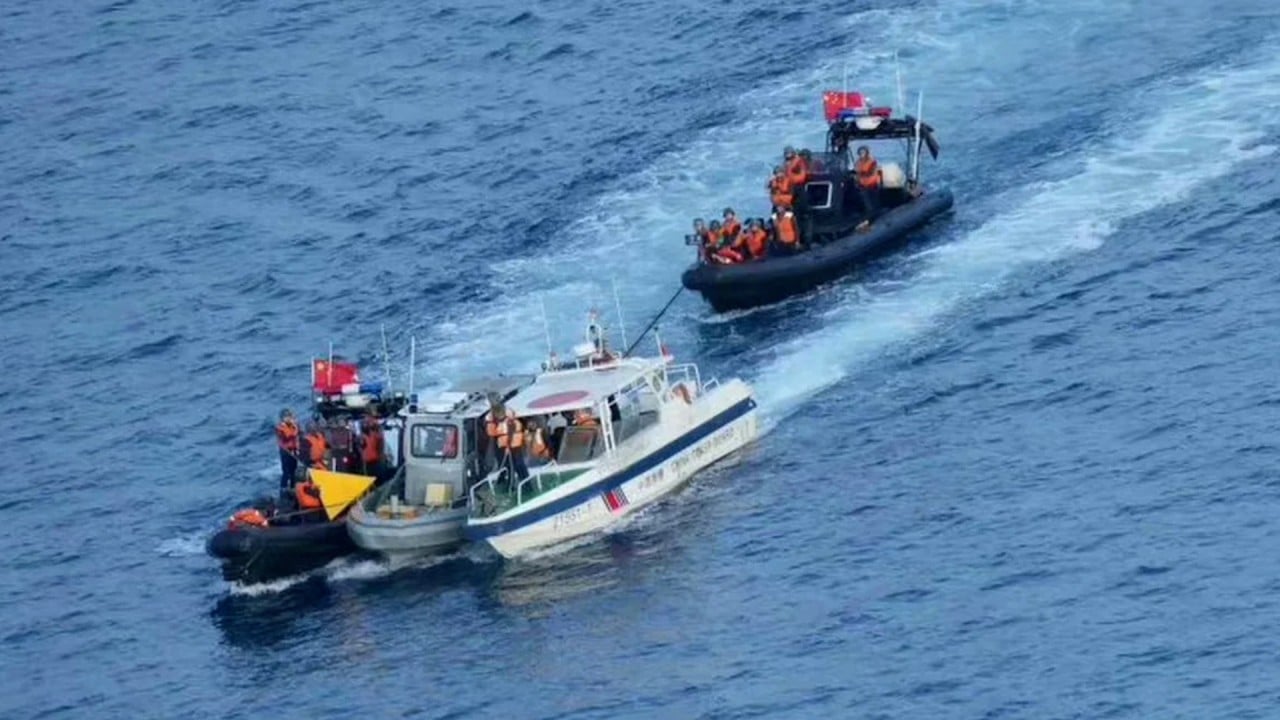China has accused the US and its allies of threatening regional peace and stability by forming blocs and fanning tensions, after US-Japan “2+2” talks and “Quad” foreign ministers highlighted the need to counter Beijing.
Chinese foreign ministry spokesman Lin Jian said on Monday that Japan and the United States were compromising the security interests of other countries in the name of promoting a rules-based international order.
“They claim to promote regional peace and a rules-based international order but are actually forming blocs, cobbling together exclusionary groupings, manipulating political games and creating confrontations, which are the real threats to regional peace and stability,” Lin said.
He added that attempts by the two countries to boost nuclear deterrence and extended deterrence – or efforts to discourage attacks on partners – would only increase regional tensions and the risks of nuclear proliferation and conflict.
Lin’s comments followed 2+2 security talks on Sunday between US Secretary of State Antony Blinken, Secretary of Defence Lloyd Austin and their Japanese counterparts, Foreign Minister Yoko Kamikawa and Defence Minister Minoru Kihara in Tokyo.

In a joint statement after the talks, the treaty allies labelled China as the “greatest strategic challenge” in the Indo-Pacific region.
“The ministers concurred that the People’s Republic of China’s foreign policy seeks to reshape the international order for its own benefit at the expense of others,” the statement said.
They also “shared their continuing concerns regarding [China’s] ongoing and rapid expansion of its nuclear weapons arsenal” and lack of “transparency regarding its intent”.
However, Lin said China’s military activities were “legitimate and reasonable, keeping our nuclear capabilities at the minimum level needed for national security”.
On maritime issues, the statement referred to what it called China’s “intensifying attempts” to change the status quo in the East China Sea, where it has a long-running territorial dispute with Japan over the Diaoyu Islands. Japan controls the islands and calls them the Senkaku.
In a reference to clashes between Chinese and Philippine vessels over disputed areas in the South China Sea, the US and Japan raised objections to Beijing’s “unlawful maritime claims, militarisation of reclaimed features, and threatening and provocative activities” in the vast waterway.
They also expressed “serious concerns” over what they labelled as Beijing’s “dangerous and destabilising” attempts to block Philippine resupply missions to Second Thomas Shoal. The shoal is part of the disputed Spratly Islands, claimed also by China as the Nansha Islands.
On Monday, Australia’s Penny Wong and India’s Subrahmanyam Jaishankar joined Blinken and Kamikawa in Tokyo for a foreign ministers’ meeting of the Quad security alliance.
In a joint statement later, the four-way grouping raised concerns about the “militarisation of disputed features, and coercive and intimidating manoeuvres in the South China Sea”, in a veiled reference to China.
“We also express our serious concern about the dangerous use of coastguard and maritime militia vessels, the increasing use of various kinds of dangerous manoeuvres, and efforts to disrupt other countries’ offshore resource exploitation activities,” the Quad statement said.
In response, Lin said China was steadfast in safeguarding its territorial sovereignty and maritime rights, and aimed to address bilateral maritime issues through dialogue and negotiation with the countries concerned.
“Certain extra-regional countries frequently send advanced military aircraft and warships to the South China Sea to show off their power and create tensions,” he said, adding that such actions were sowing divisions and provoking regional confrontations.
“China firmly opposes these countries using the pretext of ‘opposing coercion’ to actually engage in group confrontations,” Lin said. “They claim to maintain order but are in fact preserving the laws and practices concocted by a handful of countries.”
The South China Sea has become a global talking point in recent months, much to the chagrin of China, which stakes historic claim to most of the vast waterway and has always opposed internationalisation of the issue.
Meanwhile, the US and its regional allies have been ramping up defence synergy with the Philippines to counter China’s manoeuvres in disputed waters, while dispatching warships for patrols and military exercises.
During Sunday’s 2+2 talks with Japan, US defence chief Austin said the Pentagon would “upgrade the US Forces Japan to a joint force headquarters with expanded missions and operational responsibilities”, and reporting to the commander of the US Indo-Pacific Command.
Blinken and Austin will be in Manila on Tuesday for a 2+2 foreign and defence ministers’ dialogue with their Philippine counterparts.



